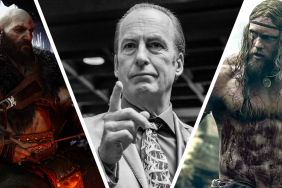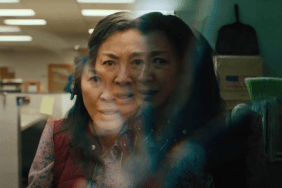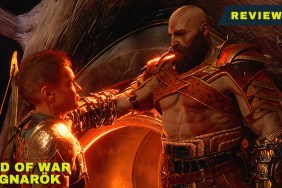
Beyond the professional accomplishments of Alan Turing depicted within the narrative of The Imitation Game, it’s the way the film deals with his homosexuality, in a time where homosexuality was illegal in Britain, that makes it much more than your standard biopic. With a screenplay by Graham Moore, based on the book “Alan Turing: The Enigma”, director Morten Tyldum (Headhunters) balances multiple timelines with precision, bouncing from Turing’s childhood in the late ’20s, to code cracking Germany’s Enigma code during World War II and finally where the story begins, 1952, as Turing falls under the questioning eye of a police detective.
Using these three narratives, Tyldum grants us access to specific turning points in Turing’s life with Benedict Cumberbatch inhabiting the genius mathematician and cryptographer with what may be the best performance of his career. In a film entrenched in secrets, Cumberbatch is forced to play things close to the vest, though Turing isn’t without his eccentricities. Both antisocial and straight forward, there are a range of emotions and character peculiarities Cumberbatch must manage without taking it too far and that could have happened so easily.
The Imitation Game may be largely successful due to the fact it has all the signs of a conventionally told story, though without the convention. Turing is brash and unafraid to declare himself the best. It’s his confidence that lands him a job attempting break Nazi codes, but his need to hide his sexuality is in complete conflict with this aspect of his personality. Even still, the movie doesn’t necessarily focus on his sexuality, at least not openly, until it is absolutely crucial to the story. Turing’s persecution is largely internal for much of the running time, though even that is never seen on screen except in small fits and bursts, making it all the more powerful.
The “love” story is equally unconventional as Turing works alongside a group of fellow code breakers and mathematicians, though “alongside” may be a stretch considering his personality and desire to work alone casts him as an outsider. This eventually changes, though not without the help of the lone female in the group, Joan Clarke (Keira Knightley), but even still, Turing remains an outsider in many ways.
To call what takes place between Joan and Alan a love story is a bit disingenuous, but it is their relationship that adds another layer to the story, a layer that still relies on cliched storytelling tropes, but doesn’t feel cliche simply due to the kind of story being told. I’d say more, but that would only serve to spoil the film for those unfamiliar with Turing’s life.
Knightley is decent in the role of Joan and, if anything, it’s her performance that didn’t exactly feel all that right to me. At this point I’m largely convinced Keira Knightley has a hard time playing anyone other than Keira Knightley. She’s all I see in her characters and this is an issue that only comes about when a role doesn’t necessarily fit her rigid style of acting and this is one character I don’t think she was meant to play, though it’s only a minor quibble as it doesn’t take away from the overall enjoyment.
The rest of the supporting cast is largely meant to serve Cumberbatch whenever necessary, though Charles Dance (“Game of Thrones”) is more than adequately stern as naval Commander Alastair Denniston and Mark Strong finally gets to play something other than a villain as Stewart Menzies, chief of the newly formed MI6.
I wouldn’t say Oscar Faura‘s cinematography or even Alexandre Desplat‘s score stand out all that much, but William Goldenberg (Argo, Zero Dark Thirty) did a wonderful job with the editing. I was originally a little wary about how the film was jumping from one timeline to the next, but it’s vital to the storytelling, adding weight to each little revelation in Turing’s life and Goldenberg proves why he’s an Oscar winning editor with this one.
If I were to have one final issue with the film, the movie foreshadows Turing’s death in the opening moments, but chickens out in the end, choosing to close with text over the screen and it would have been so much better had we seen everything, up to Turing’s final days. The film is so expertly crafted, building toward and focusing on these important moments in Turing’s life and his death, in my opinion, is a vital aspect to his story. Yes, it would have made for a slightly darker ending and perhaps taken the mood down a notch while exiting the theater, but it would have been the right thing to do and would have made a great film even greater.









